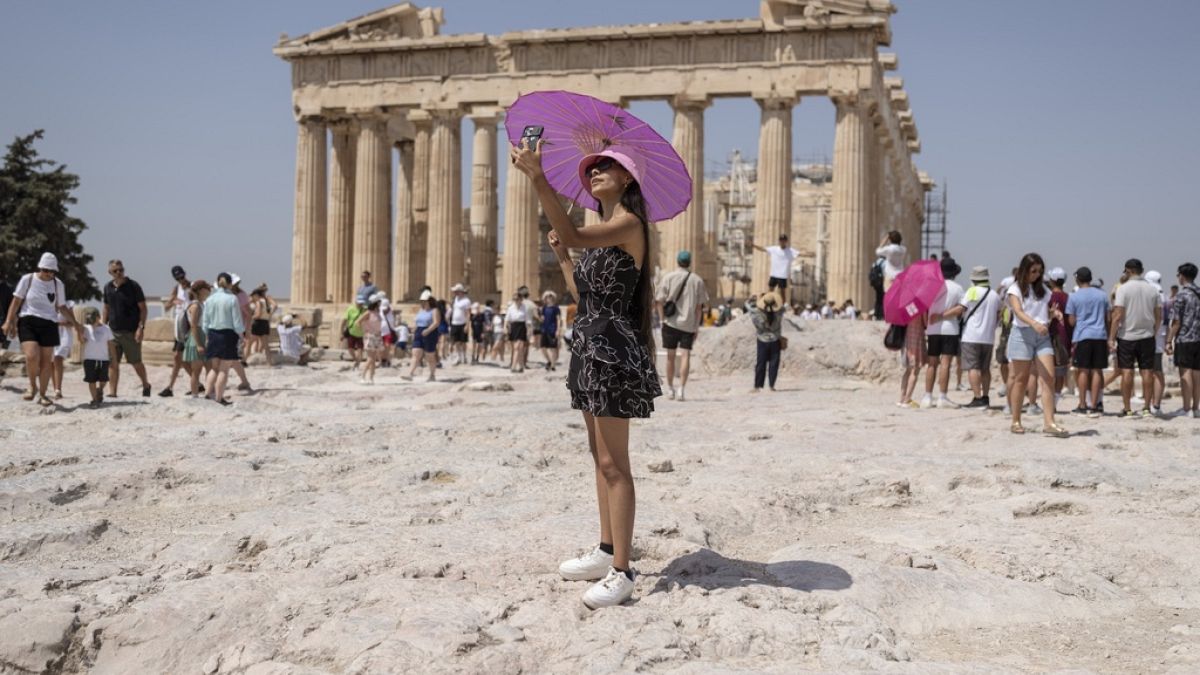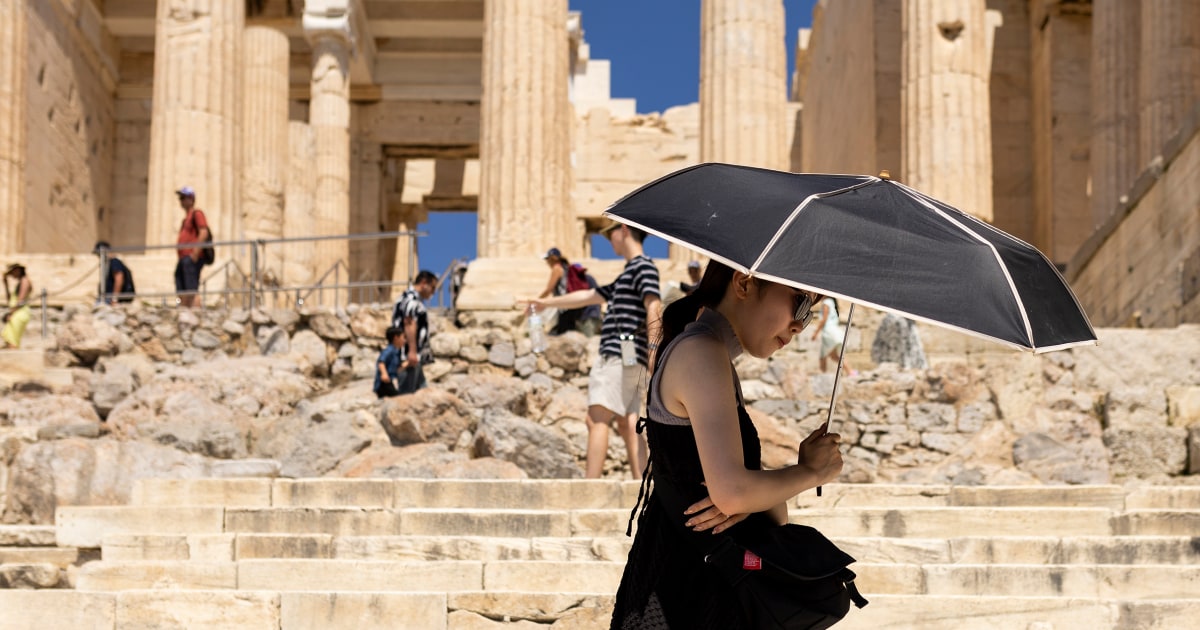
In recent weeks, Greece has been experiencing a heatwave that has resulted in several tragic incidents involving tourists. At least six people have died and more are missing.
A 67-year-old German tourist was found dead on the Greek island of Crete after going for a hike in the scorching heat. The man, who had contacted his wife to say he wasn't feeling well, was later discovered in Trypiti canyon.
Two French women, aged 73 and 64, have gone missing on the island of Sikinos after they went out for a walk. Greek authorities are currently conducting search and rescue operations to locate them.
The extreme heat has also claimed the lives of a Dutch tourist on Samos island and an American tourist on Mathraki island in the Ionian Sea. A 59-year-old American policeman was also found dead during this period, but his cause of death is not yet known.
Greece's early summer heatwave has seen temperatures exceeding 40 degrees Celsius (104 Fahrenheit) in many areas for several days in a row. The country's geography and proximity to Africa make it particularly vulnerable to the effects of human-caused climate change.
The Greek Minister of Health, Adonis Georgiadis, has warned tourists not to underestimate the impact of climate change and not to take unnecessary risks during their visit. He urged them to be very careful while visiting the country as it grapples with soaring temperatures.
Symptoms of heat stroke include confusion, difficulty making decisions, and an altered perception of risk. Seeking shade or a cool place, drinking water, and seeking medical help are recommended actions for those experiencing these symptoms.
Babies, young children, people with pre-existing health conditions, and the elderly are especially vulnerable during heatwaves. They should take particular care to stay indoors.
Athens municipal authority is opening air-conditioned spaces and providing support during the heatwave. Community centers in Agios Pavlos, Neos Kosmos, Votanikos, Kolokynthous, Agios Eleftherios and Kypseli will provide air-conditioned shelter to vulnerable residents and visitors. Citizens may contact the 24-hour Citizen Service Line or the 'Heatwave Line' for advice on heat-related health problems.
Social workers, nurses, and psychologists are distributing water, meals, coffee, and protection kits to homeless people. Foot patrols and drones are keeping an eye out for possible fires on Lycabettus Hill. More than 150 water receptacles have been set out for stray cats and dogs.
The spate of deaths and disappearances during the heatwave has left many wondering what is causing tourists to go missing in Greece. Scientists believe that the hypothalamus, a part of the brain responsible for regulating body temperature, may be playing a role. The extreme heat can cause it to malfunction, leading to disorientation and confusion.
It is important for tourists to take necessary precautions during their visit to Greece during this period. They should avoid hiking in the heat of the day, stay hydrated, and seek shelter when needed.



